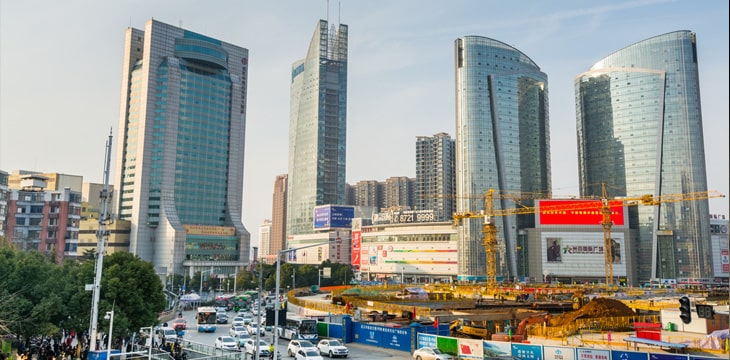|
Getting your Trinity Audio player ready...
|
China has been making forays in the metaverse since it imposed a blanket ban on digital currencies in 2021. However, non-fungible tokens (NFTs) have been relegated to the back seat due to regulators’ growing uncertainties around the asset class.
According to a report from the South China Morning Post, Wuhan is leading the drive away from NFTs as it removes the draft proposal it made to attract NFT investment from its industrial plan. Under the proposal, Wuhan’s authorities would have been saddled with drawing NFT investments to the city by offering incentives to industry players.
The revised document did not mention NFTs or digital collectibles but notes that the government and regulators would provide an enabling environment for firms to explore “decentralised operation models.” The document seems to go all in in the metaverse, stating that the city will be home to over 200 metaverse companies.
The document revealed that Wuhan harbors ambitious plans to build at least two metaverse industrial estates before 2025. Experts have noted that private ventures into virtual worlds have received a negative stance from the government, while cities like Shanghai and Beijing have announced plans to improve the digital economy of their cities through the use of the metaverse.
The shelving of NFT plans stands in contrast to the spike the asset class received back in 2020. OpenSea recorded hundreds of listings from Shanghai residents during the COVID-19 lockdown as users sought to preserve their experiences on the distributed ledgers, but the ban on digital currencies in the summer of 2021 soured the relationship.
The global metaverse craze
The seemingly mad rush for the metaverse has seen it rise to be one of the fastest-growing areas in the digital asset ecosystem. Governments are throwing their hats in the ring to challenge the dominance of corporations, and at the moment, the balance appears to be tilting in favor of state-backed virtual worlds.
South Korea sent waves of excitement through the industry after it announced that it was splurging $200 million to develop virtual worlds. The country’s Ministry of Science and ICT disclosed that the funds will be used to train 40,000 individuals in the metaverse, with the ultimate goal being the transformation of South Korea to be the “fifth-largest metaverse economy.”
The United Arab Emirates (UAE) appears to be transitioning to the metaverse as well after it was revealed that the Ministry of Economy had opened an office in the metaverse. Dubai, the most populous city in the UAE, stated that it planned to create 40,000 virtual jobs in the metaverse.
Watch: The BSV Global Blockchain Convention presentation, Masters of the Metaverse

 02-25-2026
02-25-2026 




